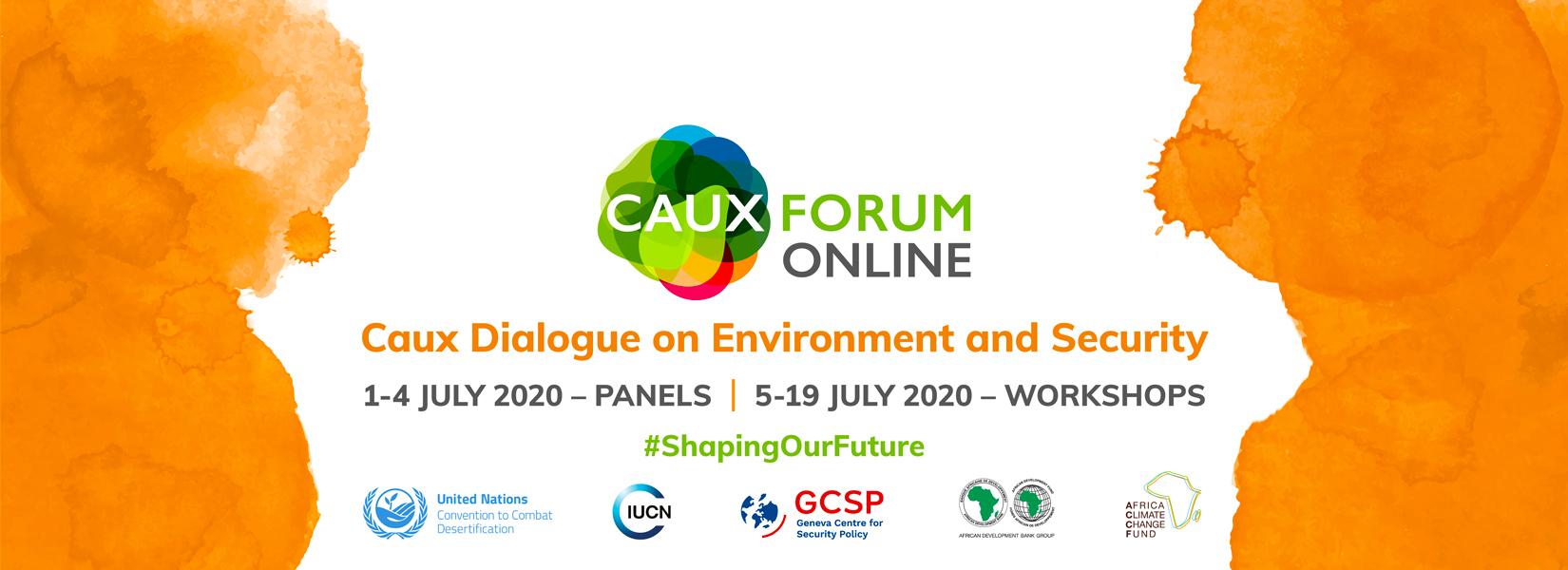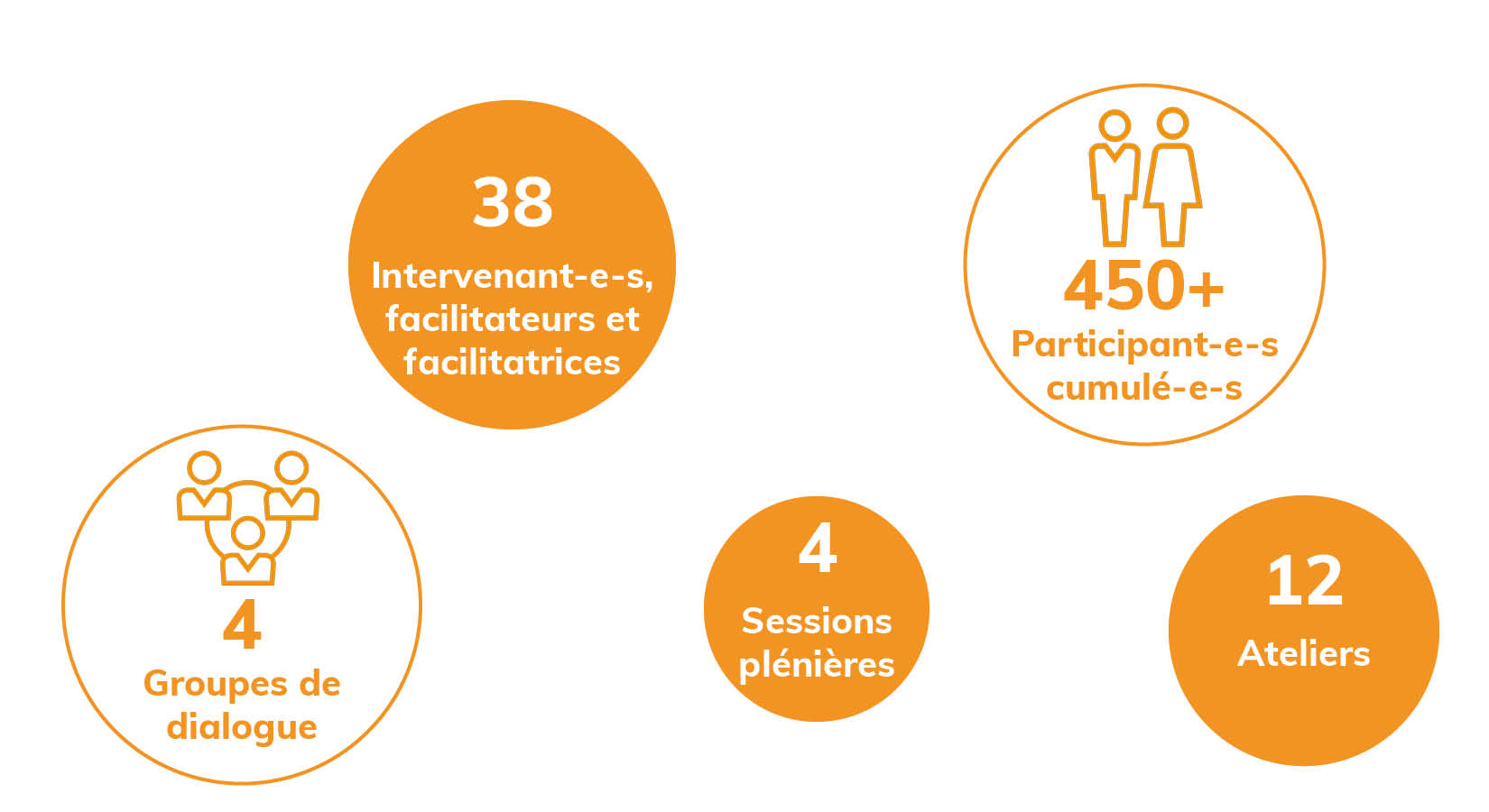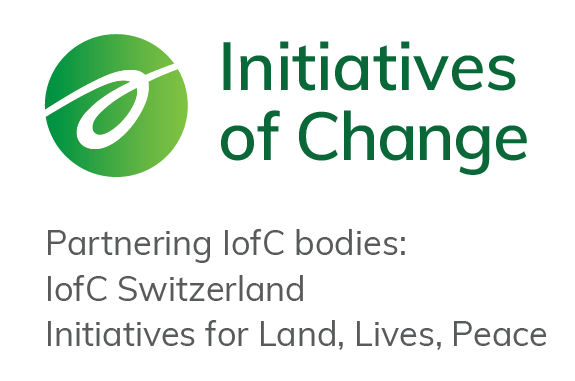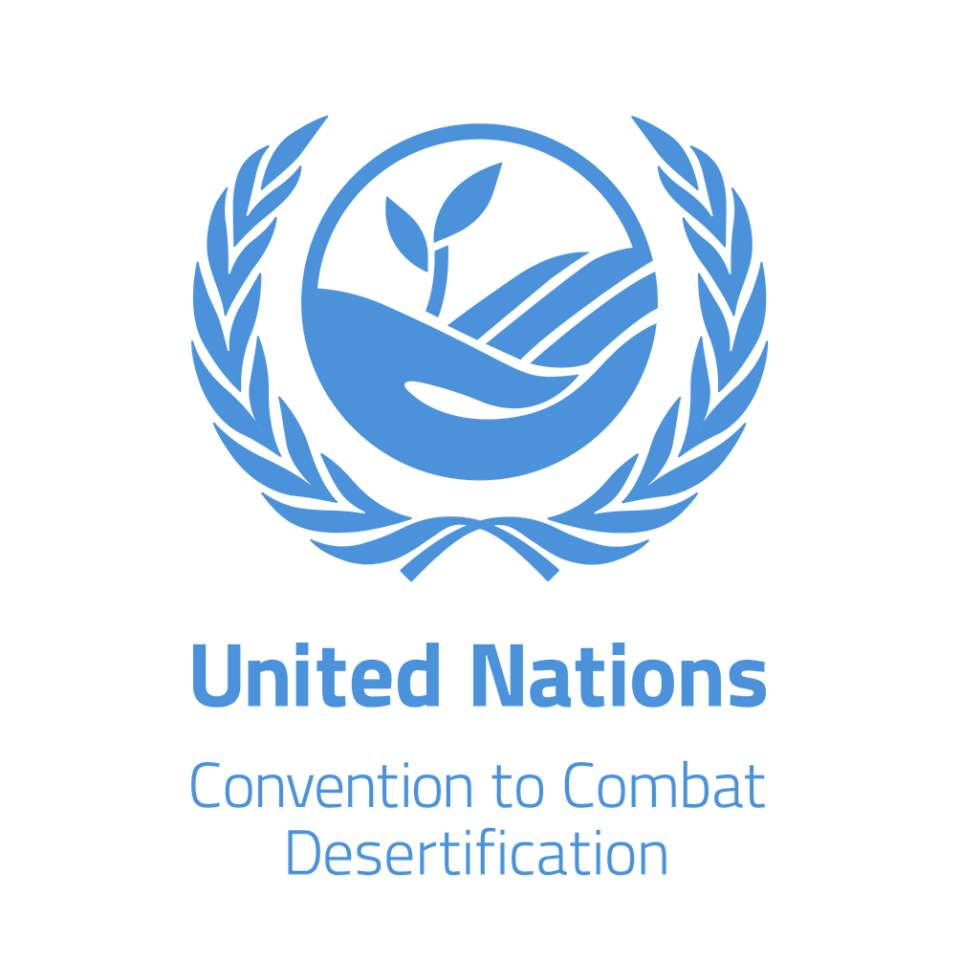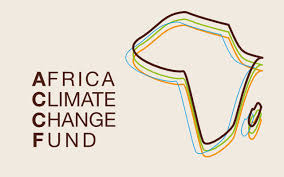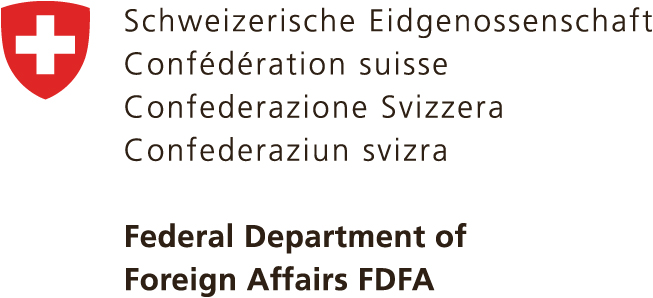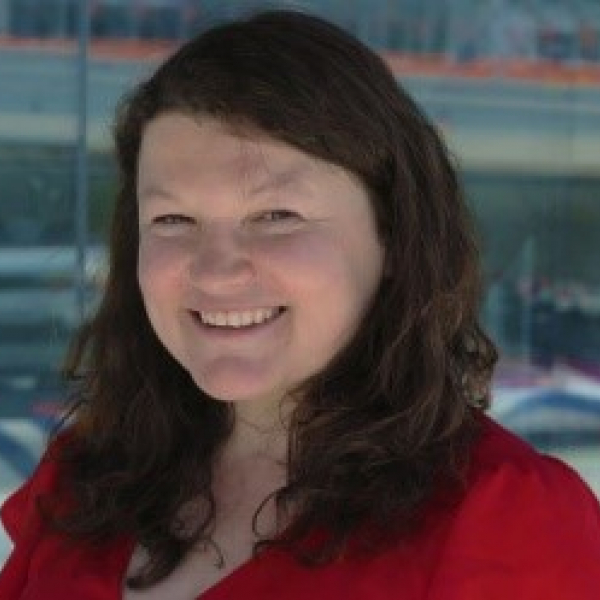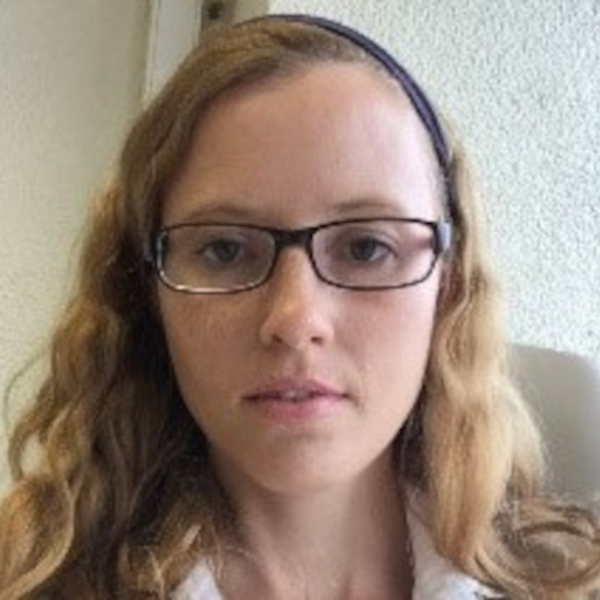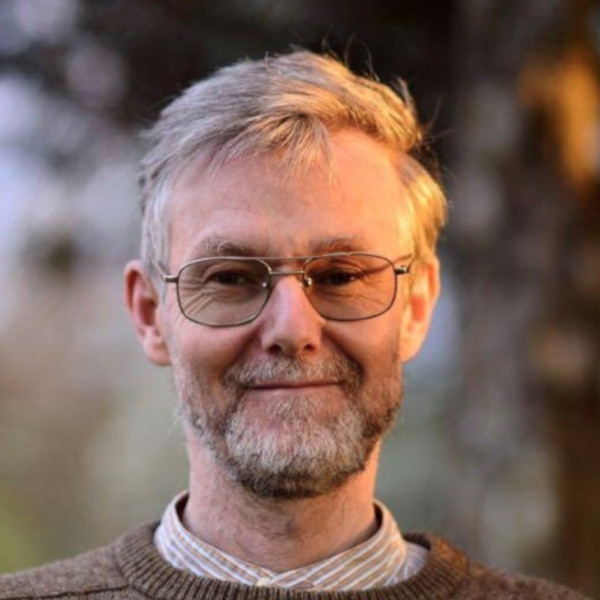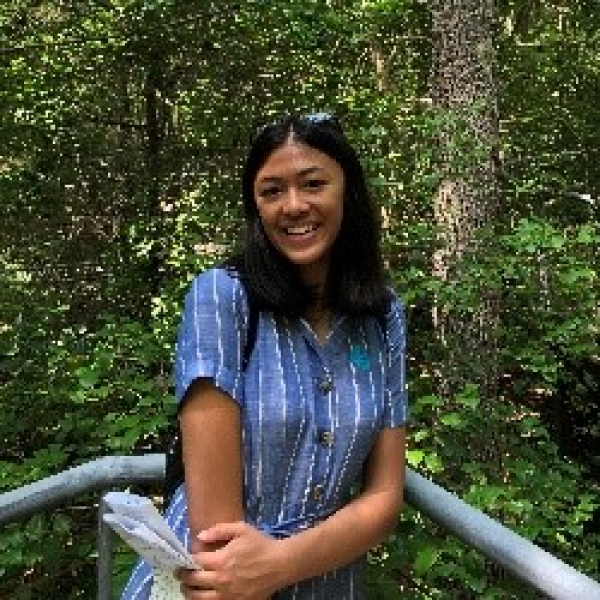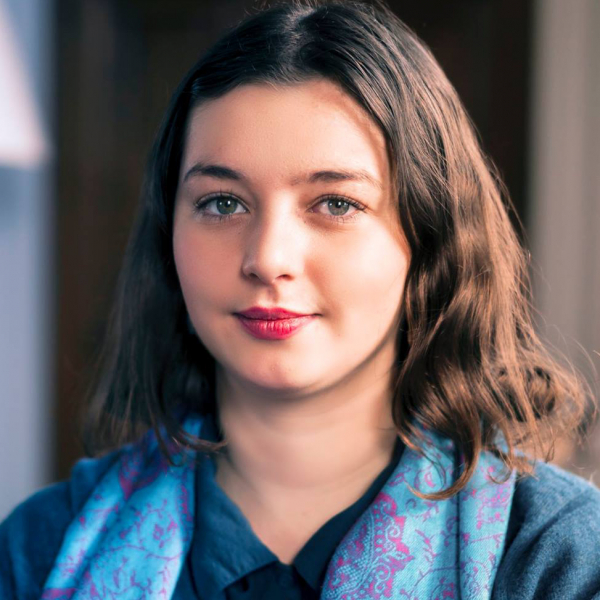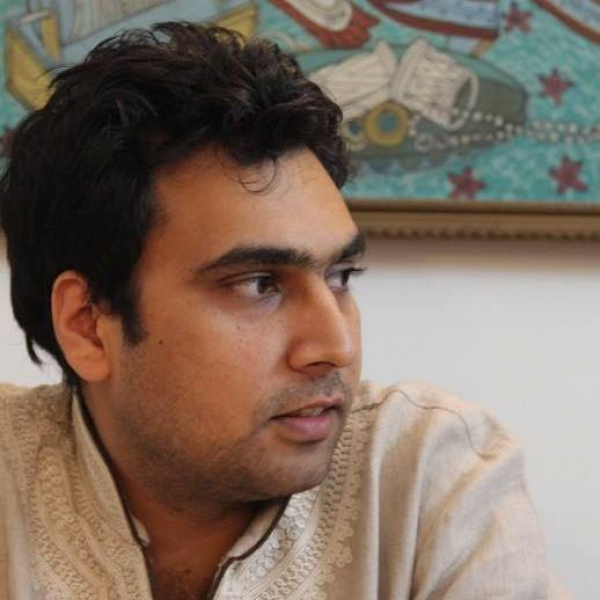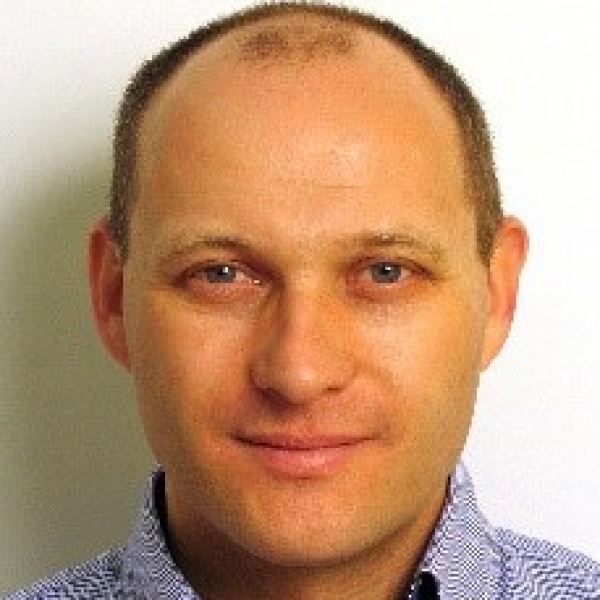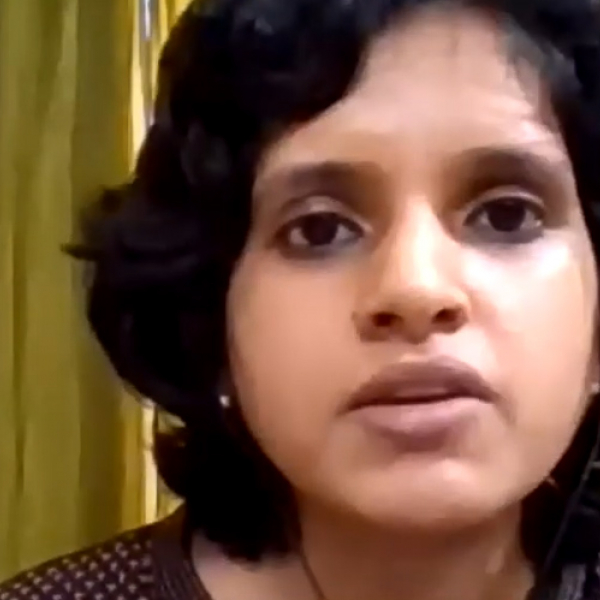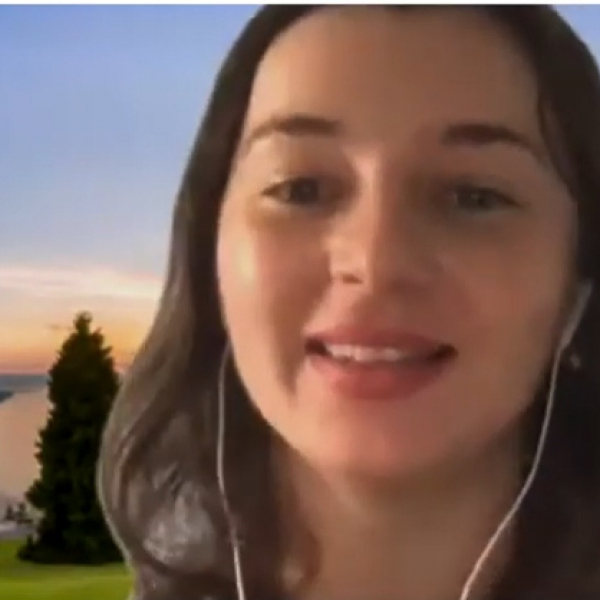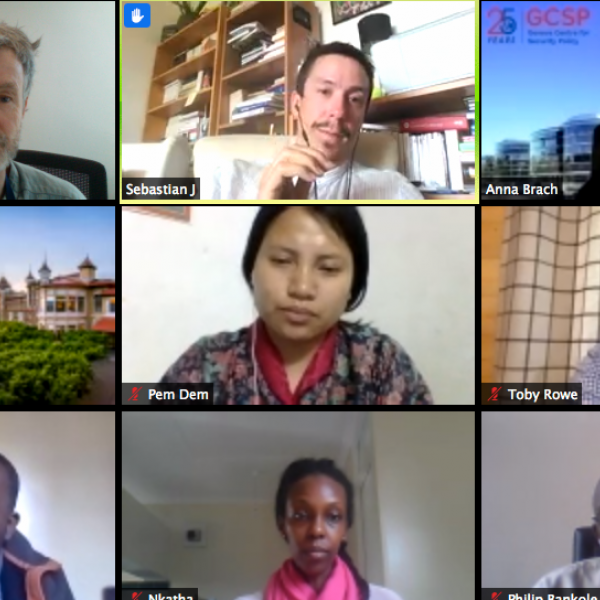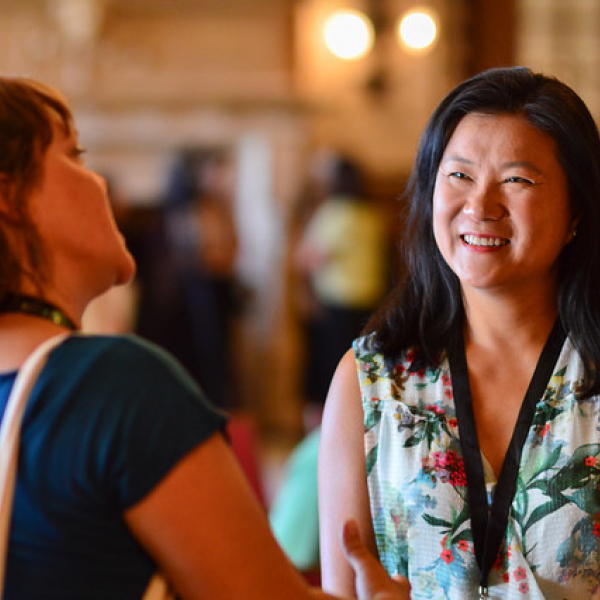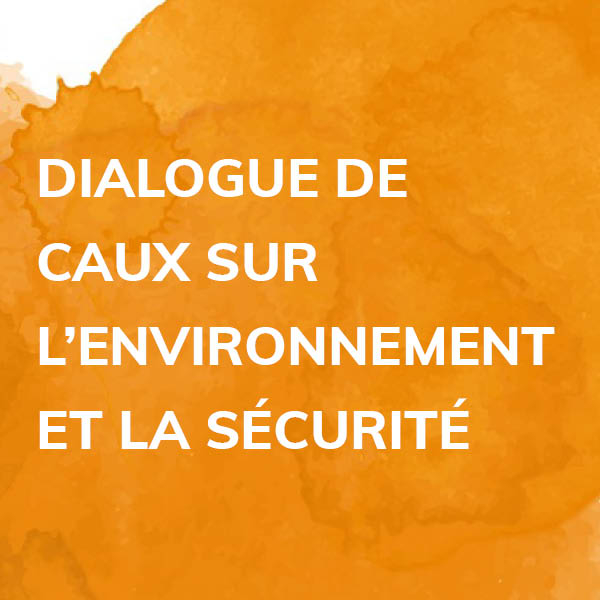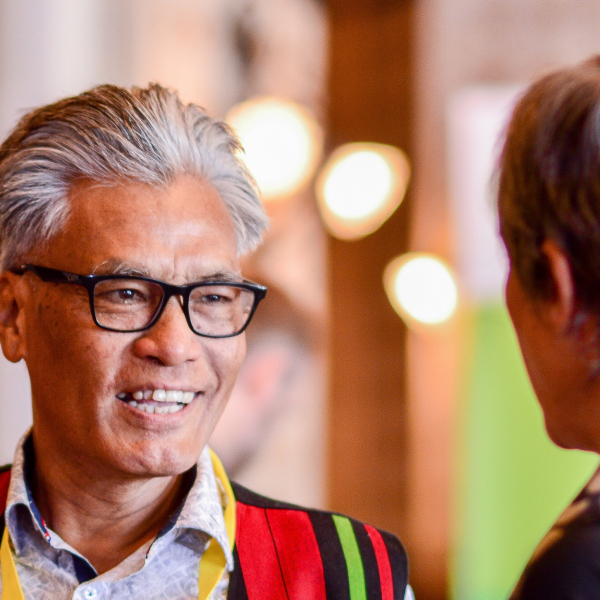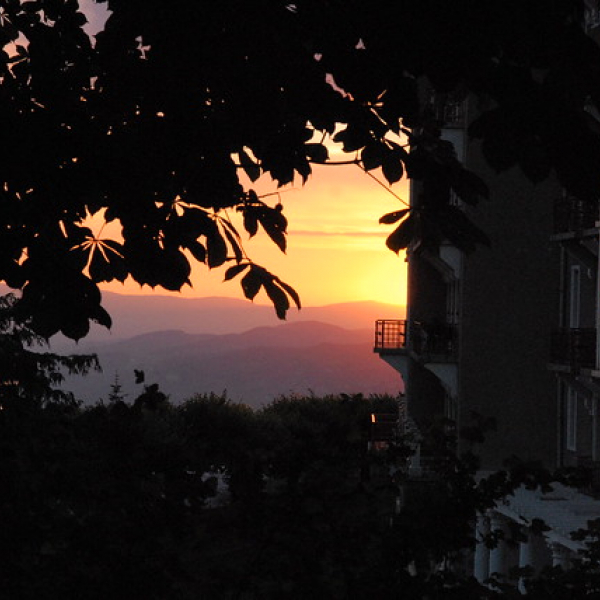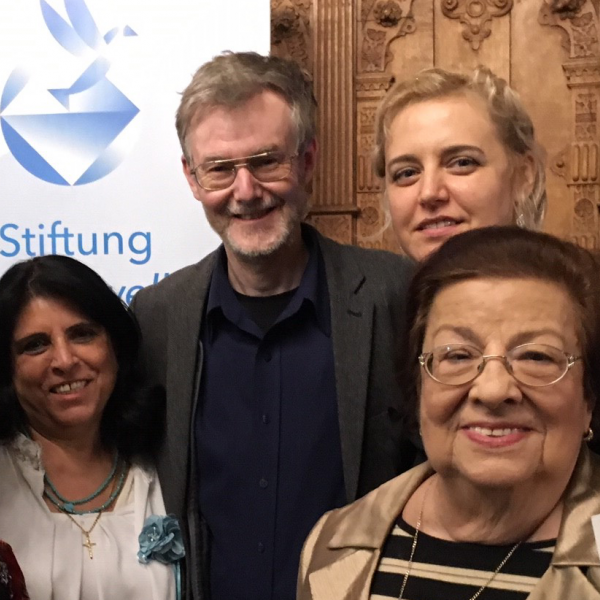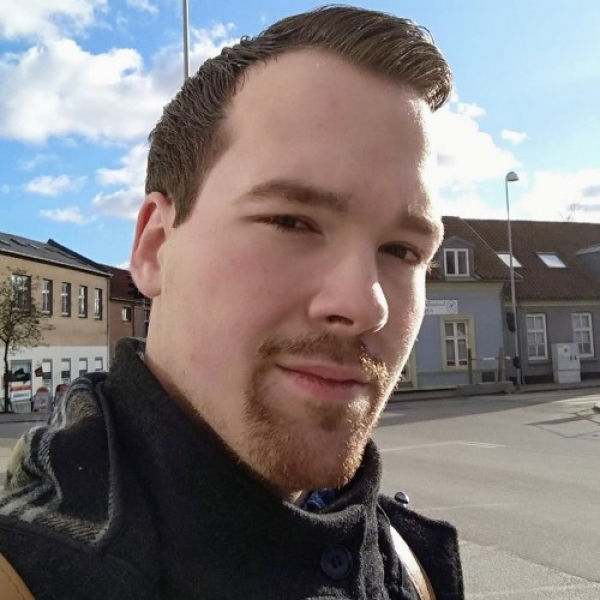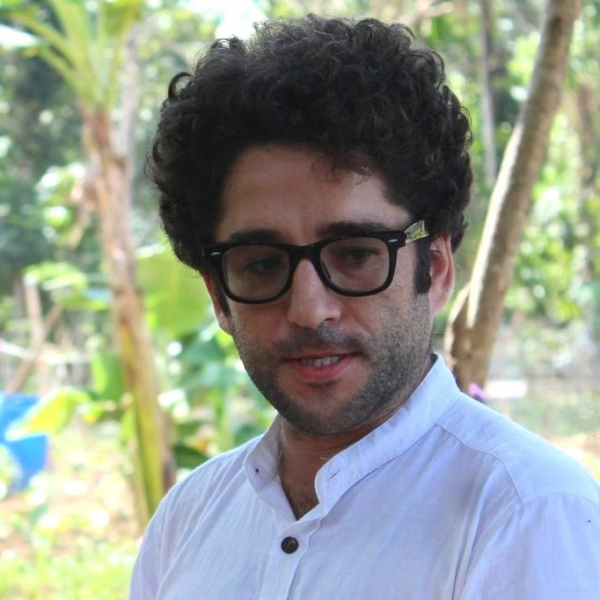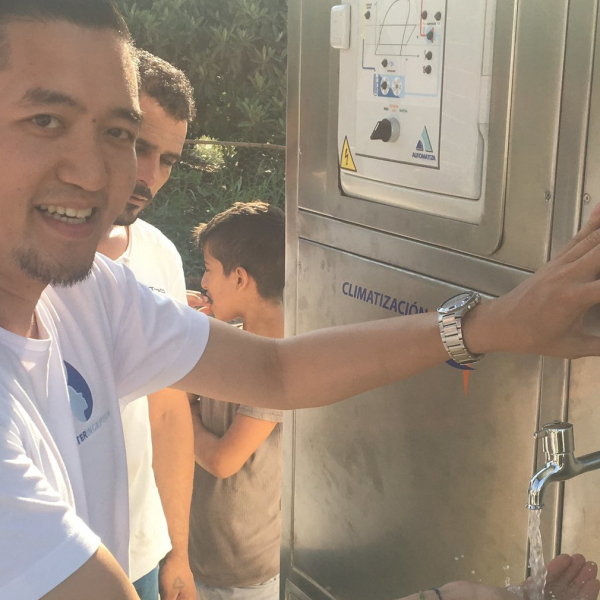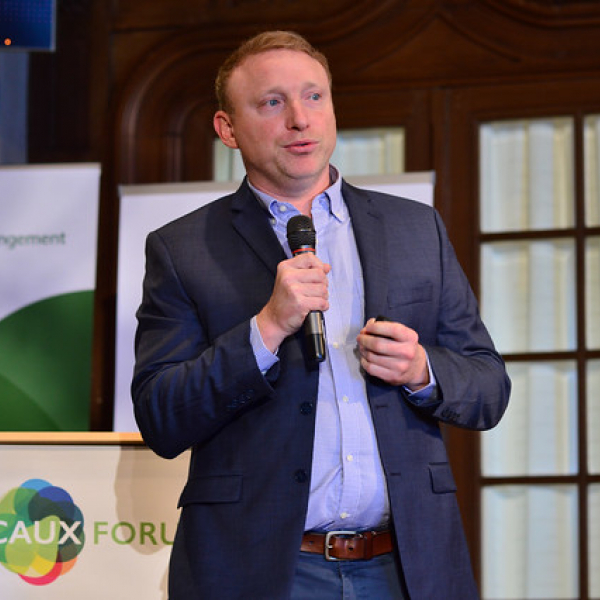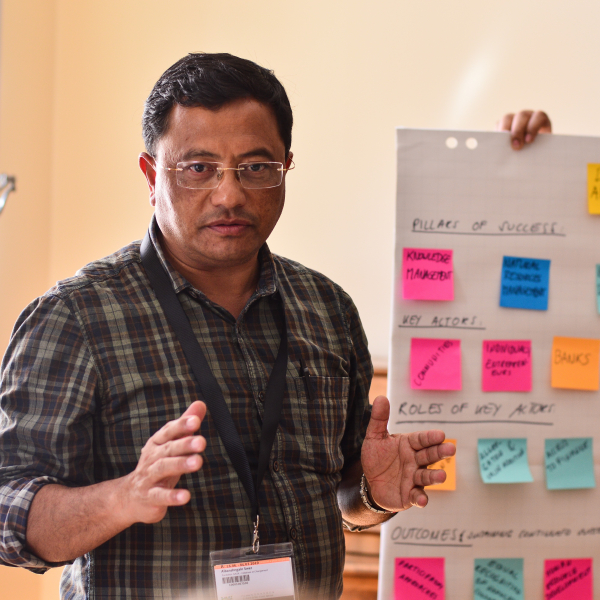
Dialogue de Caux sur l'Environnement et la Sécurité 2020
Renforcer la confiance, briser les obstacles: une opportunité de ré-imaginer l'avenir
5 - 19 juillet 2020: Ateliers & Communauté
Le changement climatique, la déforestation et le surpâturage laissent de vastes étendues de terres arides en Afrique et en Asie dégradées et peu productives. Il en résulte souvent des conflits violents et des migrations, ce qui rend plus difficile la mise en œuvre de mesures visant à atténuer le changement climatique ou à s'y adapter. Dans le pire des cas, des zones ingouvernables apparaissent, ce qui entretient des groupes armés non étatiques tels que Boko Haram et Al Shabaab. Heureusement, tout n'est pas perdu. Il est de plus en plus évident que le cercle vicieux de la dégradation des terres, des conflits et de la fragilité peut être inversé. L'intégration de la restauration des terres à la promotion de la paix au niveau communautaire peut créer un cercle vertueux menant à un rétablissement à la fois environnemental et social.
Le Dialogue de Caux sur l'environnement et la sécurité (CDES) visait à ouvrir le débat sur ce sujet et à rechercher les moyens d'amorcer ce cercle vertueux de la restauration des terres et de la paix. Cette année, le CDES a mis l'accent sur la pollinisation croisée des connaissances et des bonnes pratiques. À travers des ateliers et des panels, les participant-e-s ont pu s'informer des derniers développements dans les domaines de la paix et de l'environnement, et ont également eu l’opportunité de présenter leurs propres initiatives et de rencontrer des personnes partageant les mêmes idées.
Le premier Dialogue de Caux sur l'environnement et la sécurité à s’être tenu en ligne proposait quatre sessions plénières, dont trois en direct sur notre site web et Facebook, et plus de 10 ateliers comprenant des panels, un apprentissage pratique et une méditation sonore.
- Lire le rapport complet
- Regarder les panels en rediffusion (en anglais)
- Savoir plus sur l'Académie d'été sur la terre, la sécurité et le climat
- Découvrir le Programme de Caux pour leaders émergent-e-s
Remerciements
Nous sommes profondément reconnaissant-e-s à nos partenaires et à toutes les personnes qui ont fait un don et ont ainsi aidé à rendre cette conférence possible et accessible à ceux et celles qui en ont le plus besoin.
Si vous souhaitez soutenir nos efforts de sensibilisation et d'éducation sur la dégradation des terres et la sécurité, vous pouvez faire un don ici.
Résultats
Les conversations seront poursuivies grâce à des conférences téléphoniques mensuelles. Nous espérons que de nombreuses initiatives et collaborations en découleront et nous sommes impatient-e-s de les découvrir.
Intervenant-e-s, président-e-s et animateurs et animatrices :
- Membres du Centre de politique de sécurité de Genève
- Membres du groupe de pilotage de l'ILLP
- Ranjit Barthakur, fondateur et président, et Saurav Malhotra, co-fondateur et concepteur, Fondation Balipara
- Louise Brown, spécialiste de la finance liée au climat, Namibie
- Oli Brown, chercheur associé, Chatham House (Institut royal des affaires internationales) et Centre de politique de sécurité de Genève (GCSP)
- Kaleigh Carlson, écologiste, candidate à la maîtrise en environnement, ressources et durabilité, Institut de hautes études internationales et du développement, Genève
- Dr Humberto Delgado Rosa, directeur du capital naturel à la direction générale de l'Environnement de la Commission européenne
- Stéphane Delogne, fondateur et directeur de l'élevage bovin Highland d'Ardennes dans les Ardennes belges
- Archana Dubey, artiste, IC Centre for Governance, et coordinatrice nationale, Ecoskillarts, Inde.
- Chau Duncan, directrice d'exploitation, Earthbanc, Australie
- Cercle des bardes d’I&C, coordonné par Sven Snygaard, Groupe de pilotage de l’ILLP
- Dr Papa Faye, Secrétaire exécutif du Centre d'Action pour le Développement et la Recherche, Sénégal
- L'équipe du laboratoire BetaEarth Ventures
- Josef Garvi, fondateur et PDG de Sahara Sahel Foods
- Dr Thomas Gauthier, professeur de stratégie, EM Lyon Business School, France
- Larry Gbevlo-Lartey, PDG du Centre de recherche sur la sécurité humaine du Ghana, ancien haut représentant de l'UA pour la lutte contre le terrorisme
- Dr Raphaëla le Gouvello, experte en gestion des zones côtières marines, en territoires dépendants de la pêche et de l'aquaculture, en durabilité et en croissance bleue
- Dr Dhanasree Jayaram, professeure assistante, Académie Manipal de l'enseignement supérieur, Inde
- Dr. Himanshu Kulkarni, directeur exécutif, Centre avancé pour la gestion et le développement des ressources en eau (ACWADAM), Inde
- Olivia Lazard, Chercheuse adjointe au Centre de ressources sur l'environnement et le développement, directrice de Peace in Design Consulting Ld
- Maxi Louis, directeur de l'Association namibienne des organisations de soutien à la gestion communautaire des ressources naturelles (NASCO)
- Bengt Mattson, responsable des politiques, Association suédoise de l'industrie pharmaceutique
- James Nikitine, scientifique marin, consultant, cinéaste, PDG de Manaia Productions et de Blue Cradle.
- Mukhtar Ogle, Bureau exécutif de la présidence, Secrétaire aux initiatives stratégiques au sein du Bureau du Président, République du Kenya
- Dr Guillermo Ortuño Crespo, chercheur postdoctorant, Stockholm Resilience Centre, point focal pour la jeunesse dans le cadre de la Décennie des Nations unies pour les sciences océaniques au service du développement durable
- Cecilia de Pedro, responsable du développement durable, Apotek Hjärtat
- Gareth Phillips, directeur de la division Finance liée au climat et à l'environnement, Banque africaine de développement
- P Niroop Reddy, juriste spécialiste de l'environnement, conseiller auprès d'EnvirohealthMatters
- Tony Rinaudo AM, conseiller principal en matière d'action climatique, World Vision Australie
- Oumar B. Samake, Anthropologue, Coordinateur de Programmes, Association Malienne d'Éveil au Développement Durable (AMEDD)
- Dr. Mahamadou Savadogo, Consultant sur les questions de l'extrémisme violent au Sahel, Burkina Faso
- Nicolai Schaaf, directeur de programme, Swedish Water House, SIWI (Institut international de l'eau de Stockholm)
- Neal Spackman, fondateur et PDG de Regenerative Resources Co, États-Unis
- Oumar Sylla, directeur par intérim du Bureau régional pour l'Afrique du Programme des Nations unies pour les établissements humains (ONU-Habitat)
- Torsten Thiele, expert en finance et gouvernance des océans, fondateur du Global Ocean Trust
- Nathalie Tops, coordinatrice régionale de la résilience et des moyens de subsistance au Conseil danois pour les réfugiés
- Abasse Tougiani, Chercheur principal, Institut National de la Recherche Agronomique du Niger (INRAN)
- Dr Bishnu Raj Upreti, conseiller au Centre de recherche contemporaine du Népal
- Wim Zwijnberg, Projet sur le désarmement humanitaire à PAX for Peace
retour
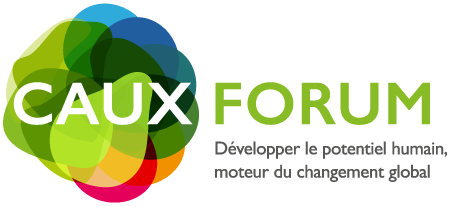
Caux Dialogue on Environment and Security - Programme
-
1 - 4 July: Panels
-
5 - 19 July: Workshops & Community Building
programme
Mercredi, 01 juillet
Plenary 1: Anticipating the security risks of land degradation and climate
Climate change and land degradation pose potentially devastating threats to human security. Can we anticipate future scenarios? What will it take to respond accordingly? Three global experts from France, Nepal and UK shed light on questions that will affect the future of humanity.
With:
- Dr Thomas Gauthier, Professor of Strategy, Emlyon Business School, France
- Oli Brown, Associate Fellow, Chatham House (The Royal Institute of International Affairs) and Geneva Centre for Security Policy (GCSP)
- Dr Bishnu Raj Upreti, Advisor, Nepal Centre for Contemporary Research, Kathmandu
Chair:
- Anna Brach, Head of Human Security, Geneva Centre for Security Policy
Jeudi, 02 juillet
Plenary 2: Community Action: entry-point to holistic solutions
From villagers replenishing groundwater in India to pastoralists mapping land rights in Darfur; from farmer-managed natural regeneration in Niger to communities managing wildlife in Namibia: durable solutions are based on effective community action. Meet practitioners from Australia, India, Namibia and Senegal who are leading the way in catalyzing community-based solutions.
With:
- Oumar Sylla, Acting Director for the Regional Office for Africa in the United Nations Human Settlements Program (UN-Habitat)
- Tony Rinaudo AM, Senior Climate Action Advisor, World Vision Australia
- Maxi Louis, Director of the Namibian Association of Community-Based Natural Resource Management Support Organisations (NASCO)
- Dr. Himanshu Kulkarni, Executive Director, Advanced Center for Water Resources Development and Management (ACWADAM), India
Chair:
- Louise Brown, Climate Finance Specialist, Namibia
Plenary 3: Sustainability risks in the Pharmaceutical Industry in the context of COVID 19
This plenary will dive into the challenges and opportunities for sustainability in the pharmaceutical industry, in the context of COVID 19. We will draw on diverse perspectives from industry and civil society on the sustainable production and consumption of medicines. The dialogue will highlight antibiotic resistance as one of the most pressing challenges facing the world. Lastly we will touch upon technical, political and legal solutions and explore how we can use the current crisis to transform the sector by building a more transparent supply chain.
With:
- P Niroop Reddy, Environmental Lawyer, Advisor to EnvirohealthMatters
- Cecilia de Pedro, Head of Sustainability, Apotek Hjärtat
- Bengt Mattson, Policy Manager, Swedish Association of Pharmaceutical Industry
- Nicolai Schaaf, Programme Manager, Swedish Water House, SIWI (Stockholm International Water Institute)
Moderator:
- Rishabh Khanna, Executive Committee, Initiatives for Land, Lives and Peace
Vendredi, 03 juillet
Plenary 4: Climate Finance: catalyst of holistic solutions
Global resources are streaming into efforts to mitigate and adapt to climate change. How can such efforts benefit the world’s poorest? Expert practitioners and scholars from the African Development Bank, Earthbanc and pioneering academic centres will share insights and prospects.
With:
- Gareth Phillips, Manager, Climate and Environment Finance Division, African Development Bank
- Chau Duncan, Chief Operating Officer, Earthbanc, Australia
- Rishabh Khanna, Executive Committee, Initiatives for Land, Lives and Peace
- Dr Dhanasree Jayaram, Assistant Professor, Manipal Academy of Higher Education, India
Chair:
- Dr Irina Fedorenko, Managing Director Caux Dialogue on Environment and Security
Lundi, 06 juillet
Workshop 1: Rural Futures: Ecosystem Restoration for Universal Basic Assets in the Eastern Himalayas
The Eastern Himalayan region stretches across two biodiversity hotspots and over 220 indigenous communities, prompting a battle for resources where human aspirations threaten the region’s biodiversity. The Rural Futures model reconciles these human and biodiversity needs through promoting habitat-mediated livelihoods for indigenous communities, thereby alleviating the economic incentives to destroy habitats. The programme enhances natural assets, creating a system for sustainable natural capital optimization that builds the capacity of indigenous communities to become stewards of their natural inheritance. In the long term, sustainable liquidation of this natural capital will facilitate the delivery of universal basic assets to forest-fringe communities.
With:
- Ranjit Barthakur, Founder & President, Balipara Foundation
- Saurav Malhotra, Rural Futures, Co-Founder & Designer, Balipara Foundation
Moderator:
- Dr Bremley Lyngdoh, Founder and CEO Worldview Impact Foundation, ILLP
mardi, 07 juillet
Workshop 2: Enterpreneurship and Innovation: building the world you want to live in
Build your future world and retrocast back to today – a method for designing your life, business or community. This process will help you create and take action on a strategy for developing regenerative ecosystems. With others, you’ll frame a challenge to identify current barriers, project into the future, build your ideal world and work backwards from that future to create a plan for getting there. Create a vision for your future, a plan for getting there, an inspired sense of direction and a new tool for your innovation toolbox.
With:
- Robert Suarez, Founder and Director of the Forest Venture Lab
- Dr Lauren Fletcher, Co-founder BetaEarth
- Greg FitzGerald, Principal at Venture Stem
Moderator:
- Dr. Irina Fedorenko, Managing Director Caux Dialogue on Environment and Security
Mercredi, 08 juillet
Workshop 3: Land degradation and remediation: latest developments and best practices
Land degradation springs from the interplay between the degradation of traditional management systems, ignorance of modern insights into restoration science, poor governance and competing claims. We tend to associate such conditions with poor countries, yet they can also affect the world's richest nations. Join this workshop to learn about the latest developments in the relationship between land degradation and exile, to discuss how EU environmental policy can effect change globally and to witness astonishing innovations in areas ranging from the rich temperate soils of Belgium to the most degraded landscapes on Earth, the saline flats of desert shores and the shifting boundaries of the Sahel and the Sahara.
With:
- Dr Humberto Delgado Rosa, Director for Natural Capital at the European Commission’s Directorate-General for the Environment
- Dr Papa Faye, Executive Secretary of Centre d'Action pour le Développement et la Recherche, Senegal
- Josef Garvi, Founder and CEO of Sahara Sahel Foods
- Neal Spackman, Founder and CEO of Regenerative Resources Co, USA
- Stéphane Delogne, Founder and Manager of the Highland d'Ardennes Beef Farm in the Belgian Ardennes
Moderator:
- Patrick Worms, Senior Science Policy Advisor, World Agroforestry Centre
Workshop 4: Is the environment the missing dimension of peace?
We will consider the nexus of environmental restoration, peacemaking, trust and security. Violence may come from communal tensions, ideological preconceptions, disruptions of livelihoods, mistrust and fear, or criminal exploitation. Environmental degradation can exacerbate many of these drivers of conflict, and we need new tools to reverse the downward spiral and rebuild hope and trust. We also need to scale up the re-creation of environments which provide the physical and spiritual sustenance on which we all depend. The panel will bring perspectives that cut across the usual silos, and will explore the opportunities for tackling local and global risks through innovative and familiar approaches, restoring physical environments and human relationships alike. From community activists to security forces, from pastoralists to climate researchers, these issues matter for everyone, and everyone can contribute to addressing them.
Moderators:
- Peter Rundell & Olivia Lazard
With:
- Larry Gbevlo-Lartey, CEO Human Security Research Center of Ghana, former AU High Representative for Counter-Terrorism
- Nathalie Tops, Regional Resilience and Livelihoods Coordinator at the Danish Refugee Council
- Wim Zwijnberg, Project on Humanitarian Disarmament at PAX for Peace
- TBC Mukhtar Ogle, Executive Office of the Presidency, Secretary for Strategic Initiatives in the President's Office, Republic of Kenya
Jeudi, 09 juillet
Workshop 5: Interactive sound meditation (45 min)
Reunite the inner and outer world through an interactive meditative musical trip. We will go inwards to reconnect with the feeling of oneness with the world, reinforcing and broadening the quality of compassion, guided by improvized music, the sound of the flute and occasionally a few words. This zoom session will only use sound (no visuals, cameras off) and will offer a moment of relaxation for conference participants.
With:
- Žofie Kašparová, Prague, Czech Republic
Coordinator:
- Sven Snygaard, ILLP
Vendredi, 10 juillet
Workshop 6: La terre et la sécurité en Afrique Subsaharienne: évaluer les risques et chercher une réponse
Pour beaucoup de communautés d’Afrique subsaharienne, un drame est en train de se dérouler. Sous la pression d’une population croissante, du changement climatique et parfois de mauvaise gouvernance, les terres fertiles se font rares. Les gens s’appauvrissent, les jeunes cherchent une vie qui semble meilleure en ville ou en Europe, voire en rejoignant des groupes armés. Mais il est encore possible de mobiliser des ressources humaines et techniques pour restaurer la terre et la confiance. Cet atelier cherchera à mettre en lumière des scénarios positifs qui permettent d’attaquer les causes de l’extrémisme violent. En réunissant des représentants des secteurs de l’environnement et de la sécurité, l’atelier favorisera une perspective plus holistique sur ces questions complexes et contribuera à amorcer les grandes lignes d’une réponse conjointe.
Organisateurs :
- Rainer Gude, Co-Directeur général (Initiatives et Changement Suisse)
- Carol Mottet, Conseillère principale (Division Sécurité humaine du Département fédéral des affaires étrangères de Suisse)
Modérateur :
- Rainer Gude, Co-directeur général, Initiatives et Changement Suisse
Invité-e-s:
- Olivia Lazard, Chercheuse adjointe à Environment and Development Resource Center (Centre de ressouces sur l’environnement et le développement), directrice de Peace in Design Consulting Ld
- Oumar B. SAMAKE, Anthropologue, Coordonnateur de Programmes, Association Malienne d’Éveil au Développement Durable (AMEDD)
- Dr. Mahamadou SAVADOGO, Consultant sur les questions de l'extrémisme violent au Sahel, Burkina Faso
- Abasse Tougiani, Chercheur principal, Institut Nationale de la Recherche Agronomique du Niger (INRAN), Niger
Samedi, 11 juillet
Workshop 7: Arts and love in politics (60 min)
How can artistic expressions be combined with real life politics as part of the same drive for good in the world? How can one imagine a wonderful world and still be realistic and practical about what needs to be done to get there? Lisa Yasko will share her personal journey as a member of the Ukrainian parliament and politician.
With:
- Lisa Yasko, Kiev, Ukraine
Coordinator:
- Sven Snygaard, ILLP
Lundi, 13 juillet
Workshop 8: First Caux Ocean Dialogue: Science, Policy, Conservation and Finance - The Future is now!
Since 2012, the Caux Dialogue on Land and Security has explored issues of desertification, deforestation, conflict, and such solutions as land restoration, agroecology, peacebuilding and innovative green finance. But land only actually represents 29% of the world’s surface.
Now that the Caux Dialogue is focusing more on the environment in general, it can begin to explore crucially important issues concerning the remaining 71% of the Earth’s surface: the ocean, the world’s largest source of protein, which directly provides a livelihood to more than 3 billion people.
Through a collection of viewpoints, from the science, conservation, policy and finance sectors, this session will pave the way for several more Caux Ocean Dialogues.
The future of life on our planet indubitably lies in our ability to save the ocean: this is not to exclude terrestial issues, as everything is connected. The future is now. (Find out more here).
With:
- James Nikitine, Marine scientist, consultant, filmmaker, CEO Manaia Productions and Blue Cradle.
- Dr Guillermo Ortuño Crespo, Postdoctoral researcher, Stockholm Resilience Centre, Youth Focal Point for the UN Ocean Decade of Ocean Science for Sustainable Development
- Dr Raphaëla le Gouvello, Expert in marine coastal zone management, fisheries and aquaculture-dependent territories, sustainability, blue growth
- Kaleigh Carlson, Environmental conservationist, MSc candidate in Environment, Resources and Sustainability, The Graduate Institute, Geneva
- Torsten Thiele, Ocean finance and governance expert, founder, Global Ocean Trust
mardi, 14 juillet
Workshop 9 (Part 1): Creativity for Sustainability - a journey from the personal to the global
Creativity holds the power to communicate without borders. This power has been harvested in the past to put across messages of equity, equality and social causes. Creativity offers the flexibility to move through different media – especially the visual arts – to work for nature conservation.
During the COVID-19 pandemic we have all learnt that if we take care of nature, nature will take care of us. In the four sessions of this workshop, we will take you on a journey, starting from the personal and moving to the global, towards deeper connection with sustainability in your daily life.
Participants must commit to all the four sessions, two each day. Facilitation will take place in two or three groups, depending on the facilitators.
Please note that this workshop is held on 2 consecutive days. Participants are expected to attend on both days to get the full experience!
With:
- Kjersti Webb, Actor, Artist, Educator, Founder, Everything Theatre Company, Sweden. More on Kjersti here.
- Archana Dubey, Artist, IC Centre for Governance and National Coordinator, Ecoskillarts, India. More on Archana here.
Coordinator and Moderator:
- Pinaki Dasgupta, Secretary, Shristi & Coordinator, The Bhumi Project, India
Mercredi, 15 juillet
Workshop 9 (Part 2): Creativity for Sustainability - a journey from the personal to the global
Creativity holds the power to communicate without borders. This power has been harvested in the past to put across messages of equity, equality and social causes. Creativity offers the flexibility to move through different media – especially the visual arts – to work for nature conservation.
During the COVID-19 pandemic we have all learnt that if we take care of nature, nature will take care of us. In the four sessions of this workshop, we will take you on a journey, starting from the personal and moving to the global, towards deeper connection with sustainability in your daily life.
Participants must commit to all the four sessions, two each day. Facilitation will take place in two or three groups, depending on the facilitators.
Please note that this workshop is held on 2 consecutive days. Participants are expected to attend on both days to get the full experience!
With:
- Kjersti Webb, Actor, Artist, Educator, Founder, Everything Theatre Company, Sweden. More on Kjersti here.
- Archana Dubey, Artist, IC Centre for Governance and National Coordinator, Ecoskillarts, India. More on Archana here.
Coordinator and Moderator:
- Pinaki Dasgupta, Secretary, Shristi & Coordinator, The Bhumi Project, India
Jeudi, 16 juillet
Workshop 10: Possible Futures
- Nina Runa Essendrop, Denmark
- Tim Dendy, UK
- Members of the steering group of Bardic circles within IofC
Please note that this programme is subject to change. For technical reasons the Caux Forum Online will be held mainly in English with some sessions in French. No interpretation will be offered. Thank you for your understanding.
